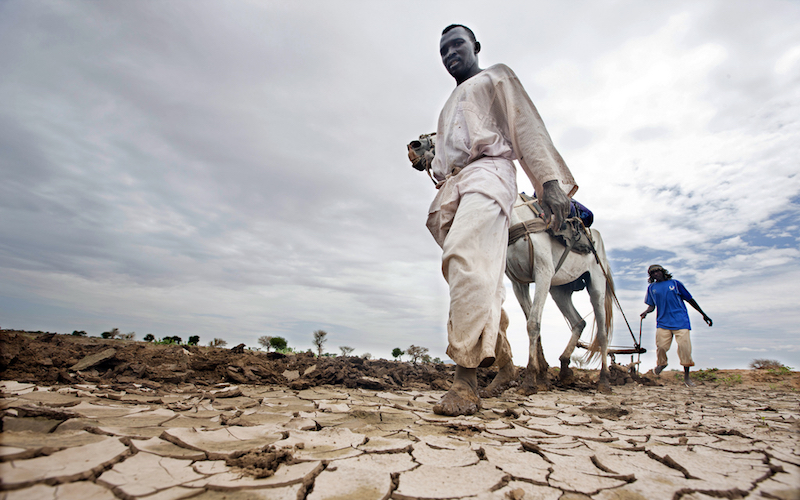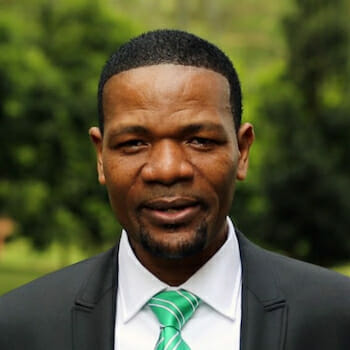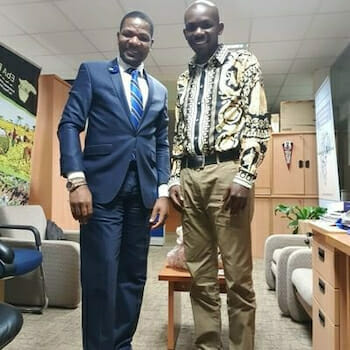
Volunteerism: A Prerequisite for Africa’s Progress
“Africa will write its own history and both north and south of the Sahara it will be a history full of glory and dignity.” These profound words of an African leader in the 60’s have haunted the continent for over 5 decades and working towards their earnest fulfillment is surely the responsibility of each succeeding generation. It is no longer tenable to keep talking of Africa’s great potential; rather, it is time to realize it for the benefit of present and future generations. Knowing fully well that Africa’s past has long been defined by commodities, its future should be defined by leveraging the collective strengths of its people’s skills and talent.
This is the formula of how this can be accomplished. Leveraging sectors for which the continent holds a comparative advantage by dedicating resources available to the continent. These include physical like technological, institutional, financial and demographic (60% of Africa’s population are young people) dividends.
Agriculture and clean energy
In agriculture, not only does the continent hold the majority 65% of global arable land but 10% of inland fresh water resources. The World Bank reports that in Africa a 10% increase in crop yields translates to approximately a 7% reduction in poverty. Growth in agriculture is at least two to four times more effective in reducing poverty than are other sectors.
Furthermore, agriculture remains the most inclusive sector employing on average 64% of the population, 70% of rural poor including women produce up to 80% of the food which translates into agriculture as the most potent force to combat poverty.
Africa could also be a world leader in clean energy. It offers the best solar resource on the entire planet. A mere 0.3% of sunlight that shines on the Sahara could supply nearly all of Europe’s energy needs. Other abundant renewable resources include hydro, wind and geothermal.
To maximize the potential of these two sectors, clean energy and sustainable agriculture need to be prioritized and integrated and considered as complementary resources. This means linking the two sectors in order to eliminate inefficiencies like postharvest losses currently costing an average of $4 billion annually. This integration can potentially create as many as 17 million jobs, earn an additional $20 billion annually from agro-trade and catalyze an agro-sector projected to be worth $1 trillion in less than 15 years.
Given the carbon offsetting and climate resilience potential of clean energy and EBA driven agriculture, this integration will have the added advantage of simultaneously meeting the continents climate objectives under the Paris Agreement and will provide a competitive edge which is Africa’s winning formula.
Across Africa pockets of successes demonstrate the potency of this formula.
In DRC, a group of graduate youthful “agripreneurs” have channeled their skills, networks and capital to optimize the cassava value chain. These youth process cassava into flour, package it, standardize it and sell to bakers. For this integration, the youth generate up to $4,000 as weekly income, translating to $16,000 monthly and $196,000 of annual income.
Inclusive partnerships through volunteerism
Pockets of success are not enough for impactful progress across the continent. Rather, deliberate actions leveraging relative strengths of diverse stakeholders towards a shared objective of bridging policy and operational gaps to integrate clean energy and agriculture to realize sustainable agro-industrialization is an urgent imperative.
And for sustainability, this should be through voluntary, countries driven processes taking into account unique country contexts.
A number of examples demonstrating strength of this paradigm exist through voluntary country-driven partnerships.
For example in Nigeria through the spirit of innovative volunteerism youth groups have been mobilized through the Ecosystems Based Adaptation for Food Security Assembly (EBAFOSA) policy action framework to volunteer their skills and partner with farming cooperatives in developing an Ecosystem based Adaptation (EBA) farm, expanding the reach of EBA site-based actions in Nigeria. This farm is being linked to markets and other commercial value chains to enhance earnings. Over 1,000 youth have been engaged.
In Malawi, through Innovative Volunteerism partnerships have been mobilized to engage the Malawi Bureau of Standards to develop quality standards for the sesame crop, a high value and drought resistant crop, thus enhancing its marketability and incentivizes its wide-scale growth. This and other market actions are increasing farmer revenues, combating poverty and food insecurity, and building bio-physical resilience if the crop is drought resistant.
In Kenya, through Innovative Volunteerism inclusive partnerships have been fostered with the private sector to upscale Solar Irrigation. SunCulture Kenya, a solar irrigation enterprise, has through volunteerism partnered with farmer groups in the country to enhance the use of solar irrigation. This is actualizing Kenya’s National Determined Contributions priorities of climate smart, resource efficient agriculture while also offsetting carbon and catalyzing progress towards clean energy powered agro-industry.
Do not be left behind!
The formula for enacting an inclusive Africa and ensuring collective progress and prosperity is on the move. Volunteerism has been tested and results are paving the way to building a glorious future for the African continent. Now more than ever is the time for every citizen and stakeholder on the continent, from governments, the private sector, academia, non-governmental organizations and individual citizens to pull together and take advantage of voluntary, inclusive and mutual partnerships as a powerful strategy towards bridging implementation gaps in order to realize the dream of a prosperous Africa. Let’s seize the moment and start creating the 21st century we so desperately want. Together We Can!


